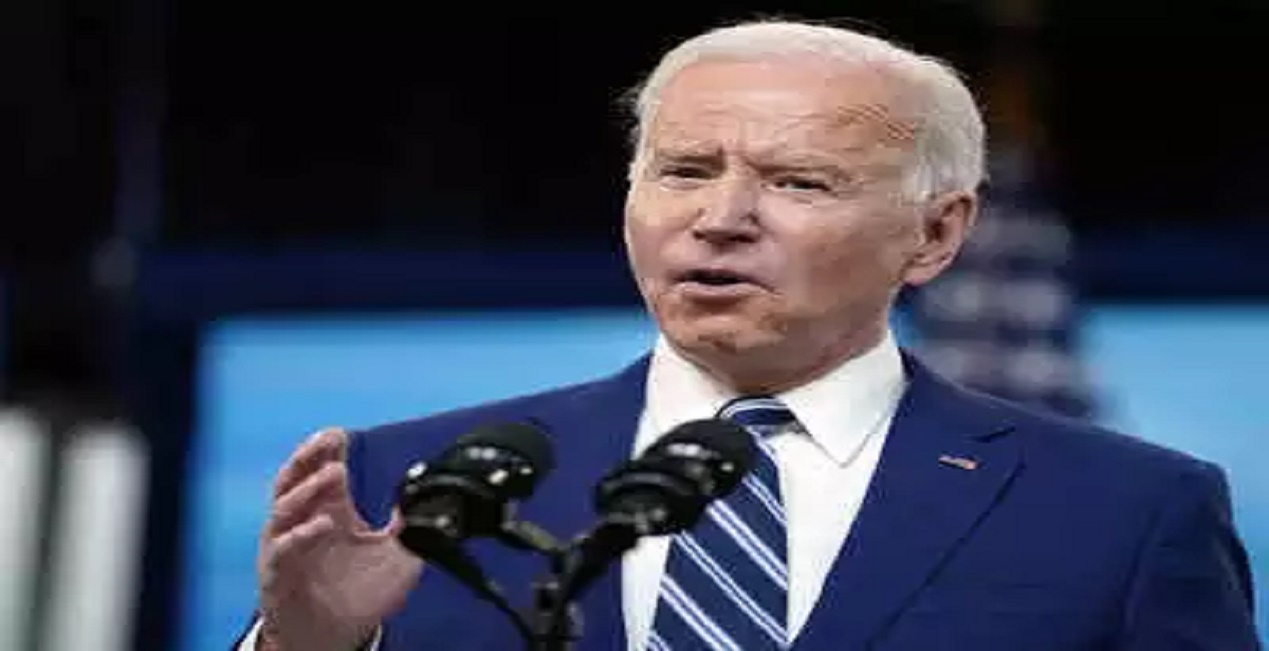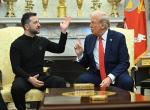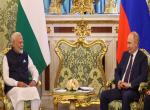On April 13, 2021, US President Joe Biden announced the departure of American troops from Afghanistan by September 11 this year- a symbolic date, coinciding with the horrific terrorist attack on the World Trade Center in the New York City and Pentagon, twenty years back. President Biden said that the “war in Afghanistan was not meant to be a multigenerational undertaking”. America went into Afghanistan with clear goals; he defined the goals as to root out Al Qaeda and prevent future terrorist attacks from being planned in Afghanistan--“those goals have been achieved and it was a time (for US) to end the forever war”1
Former US President Donald Trump, who had lost the election to Joe Biden in November 2020, had struck a deal with the Taliban on 29th February 2020 in Doha, Qatar to ensure US’s exit from Afghanistan. One of the provisions of that deal included the withdrawal of all American and NATO troops from Afghanistan by May 1, 2021. The US has about 2,500 soldiers in Afghanistan; it spent trillions of dollars in the conflict and has lost more than 2000 service members since 2001. Washington said it will reposition its troops in the region to keep an eye on the developments in Afghanistan.
There were discussions in the US policy circles about the need for the review of the US-Taliban deal. Joe Biden’s admission that it was “not very solidly negotiated deal”2 encouraged many to think that perhaps Washington will not be able to stick to the April end deadline. Yet, Biden’s long antipathy to “forever wars” has seen him unwilling to extend the exit timeline, at a time his administration is more invested in the pandemic situation at home and the emerging security challenges in East Asia. Biden’s announcement triggered some strong criticism from US officials, who viewed this as a grave mistake and have argued in favour of a conditions-based troops’ withdrawal, as opposed to a time-line based withdrawal.
US Senate Republican Leader Mitch Mcconnell tweeted “Foreign terrorists will not leave the US alone simply because our politicians have grown tired of taking the fight to them…The President needs to explain to the people how abandoning our partners and retreating in the face of the Taliban will make America safer.”3 The Wall Street Journal reported that Gen. Frank McKenzie, the commander of U.S. forces in the Middle East, Gen. Austin Miller, who leads NATO forces in Afghanistan, and Gen. Mark Milley, chairman of the Joint Chiefs of Staff, all recommended retaining the current force of 2,500 troops while stepping up diplomacy to try to cement a peace agreement.4 General McKenzie expressed great doubts about the Taliban’s reliability and said it remains to be seen what “they’re going to do.”5
The Taliban Response
At the end of last month, after President Biden expressed his intention to extend the American military presence in Afghanistan, the Taliban had stated that the foreign troops will be driven out of Afghanistan by force if the US fails to meet a May 1 deadline for withdrawal of its remaining soldiers.6 Later the Taliban, responding to Biden’s 13th April announcement issued another statement saying that by missing May 1 deadline, US has violated the Doha peace agreement--“Now as the agreement is being breached by America, it in principle opens the way for the Mujahideen of Islamic Emirate to take every necessary countermeasure, hence the American side will be held responsible for all future consequences, and not the Islamic Emirate,”.7 The group also refused to take part in the UN-led Peace Conference on Afghanistan that was supposed to be held in Istanbul from 24th April to 4th May 2021.
Earlier In February 2021, the US Secretary of State Antony Blinken wrote a letter8 to the leadership in Kabul government that provided a blueprint to accelerate the stalled peace process in Afghanistan. One of the key recommendations in the letters was the commencement of a UN-facilitated meeting between foreign ministers of key regional stakeholders, including Russia, China, Pakistan, Iran, Indian and the US, in order to discuss a common approach towards supporting the peace process in Afghanistan. Washington also proposed a high-level meeting between the Afghan government and the Taliban in Turkey to finalize the peace agreement. The Istanbul Conference was seen as the focal point of the initiatives that were suggested by Washington last month in order to reach a solution before May 1. The objective was to bring the regional countries together and make headway on an Intra-Afghan Peace Settlement before the US leaves Afghanistan. Since the Taliban did not respond to the proposed date of April 14, it was deferred back to April 24. After the refusal of the Taliban to attend the conference, Turkey recently announced that it is postponing the Istanbul Conference until the end of the Muslim holy month of Ramadan.9 Now with the postponement and Taliban’s refusal to attend the same, the relevance of the event itself becomes questionalable.
The Road Ahead for Afghanistan
Indicating the crucial role Afghanistan’s neighbour Pakistan is likely to play in deciding the future course for Afghanistan and the region at large, Afghan President Ashraf Ghani said that the announcement of the withdrawal of US and NATO forces has also created a moment of choice for Pakistan. “Will it (Pakistan) opt for regional cooperation, international partnership, and regional prosperity through joint efforts, or will it give way to the forces that are inclined to support and sustain the Taliban and the a wave of extremism for which Pakistan next to Afghanistan has probably paid the highest price? So, it is a moment of decision. We will need to watch.”10 Ghani also assured his countrymen that the Afghan government is not at the risk of collapse. Speaking at a panel discussion, Afghanistan’s National Security Advisor Mr. Hamdullah Mohib also put up a brave front and said that he sees the recent development “as a great opportunity for Afghanistan to take control of its own security situation…” Afghanistan doesn't need US combat troops on the ground, what we need is the support to ANDSF, which we’re told and has been assured, will continue.” 11
In the recent past, the call for President Ghani to step down in the interest of peace has gathered momentum. A proposal for a transitional government in Afghanistan, that can accommodate the Taliban have been doing the rounds after it’s mention in Blinken’s letter. If that happens, the leadership of that transitional government will be decided jointly be the Taliban and key political leaders in Kabul and it is very likely that Ghani will not be chosen as the leader of that government. It is thus not surprizing that Ghani has vehemently opposed the idea of a transitional government and inisted on a constitutional transfer of power through elections knowing well that elections in the present situation are inconceivable. The other prospective scenario is the one in which no sustainable political settlement is brokered between Kabul and the Taliban before September 11, 2021 in that case civil war seems to be a very likely scenario. It is increasingly being realised if the different political intellecutors and former Mujahideen leaders in Afghanistan lose faith in the Ghani Presidency, they have enough capital military, financial and political to battle it out with the Taliban or at least they can hold territories--under those circumstances, the inevitability of civil war can hardly be questionable.
India’s Response
The official statement issued by the MEA Spokesperson stated12 that India has “noted” the decision of the United States to withdraw its troops from Afghanistan and to end its military operations there -- “We are closely following the ongoing intra-Afghan peace process. Afghan people have seen more than four decades of war and unrest and deserve long-lasting peace and development.” India has consistently supported a united, democratic and sovereign Afghanistan. It has vouched for an Afghan peace process that is Afghan-led, Afghan-owned and Afghan-controlled and has welcomed any political settlement that is inclusive in its essence, and promises to preserve the socio-economic and political gains of the past two decades. New Delhi has repeatedly expressed its concerns about the increase in violence and targeted killings in Afghanistan and has called for an immediate and comprehensive ceasefire. India is the only country, among the group of countries that the US foresees playing an important role in the days to come; that does not have an official channel with the Taliban. Being probed at a panel discussion13 on whether India wants to open communications with the Taliban, External Affairs Minister Dr. Jaishankar, stated that this was not an issue that will be discussed in public. India will surely continue to keep a close watch at the developments in Afghanistan. The role of Afghan leadership and the leadership in Afghanistan’s neighbouring countries will be significant in determining the path Afghanistan eventually takes.
Endnotes
- “Joe Biden explains US Troops withdrawal from Afghanistan”. CNN, April 15, 2021. Available at: https://www.youtube.com/watch?v=un1CcbrkuZ0 (Accessed on 16.4.2021)
- “Biden says ‘tough’ to meet May 1 Afghanistan withdrawal deadline”. Al Jazeera, March 17, 2021. Available at:https://www.aljazeera.com/news/2021/3/17/biden-says-afghanistan-withdrawal-deadline-of-may-1-tough (Accessed on 16.4.2021)
- Tweeter Handle @Leader Mcconnell, April 14, 2021. Available at: https://twitter.com/LeaderMcConnell/status/1382047303498928128/(Accessed on 19.4.2021)
- Michael R. Gordon, Gordon Lubold and Vivian Salama “Biden Rebuffed Commanders’ Advice in Decision to Leave Afghanistan”The Wall Street Journal,April 17, 2021. Available at: https://www.wsj.com/articles/biden-rebuffed-commanders-advice-in-decision-to-leave-afghanistan-11618696597/(Accessed on 19.4.2021)
- “US Gen McKenzie has ‘grave doubts’ about Taliban’s reliability”.Al Jazeera, April 20, 2021. Available at:https://www.aljazeera.com/news/2021/4/20/us-gen-mckenzie-says-has-grave-doubts-about-talibans-reliability/(Accessed on 21.4.2021)
- “Taliban say will force foreign troops out if US misses Afghanistan pull out deadline”,Arab News, March 26, 2021.Available at: https://www.arabnews.com/node/1832371/world (Accessed on 21.4.2021)
- “Taliban threatens US with countermeasures”. ToloNews, April 15, 2021. Available at: https://tolonews.com/afghanistan-171477. (Accessed on 17.4.2021)
- Exclusive: US Secretary Antony Blinken in a letter to President Ghani--similar to one shared with Chairman Abdullah--presents four suggestions for Afghan peace process.” Tolo News Twitter Handle-@TOLOnews, March 7, 2021. Available at:https://twitter.com/TOLOnews/status/1368523273114419203?ref_src=twsrc%5Etfw%7Ctwcamp%5Etweetembed%7Ctwterm%5E1368523273114419203%7Ctwgr%5E%7Ctwcon%5Es1_&ref_url=https%3A%2F%2Fwww.aljazeera.com%2Fnews%2F2021%2F3%2F7%2Fblinken-proposes-plan-to-accelerate-peace-process-in-afghanistan(Accessed on 19.4.2021)
- “Turkey postpones Afghanistan peace summit over Taliban no-show”, Al Jazeera, April 21, 2021. Available at:https://www.aljazeera.com/news/2021/4/21/turkey-postpones-afghanistan-peace-summit-over-taliban-no-show (Accessed on 21.4.2021)
- Ibid
- Mr. Hamdullah Mohib, National Security Advisor, Islamic Republic of Afghanistan speaking at #Raisena 2021 Panel Discussion: “Junction Kabul: The Road to Peace”, April 16, 2021. Available at: https://www.youtube.com/watch?v=sy59RneQguI&t=844s(Accessed on 18.4.2021)
- “Official Spokesperson’s response to media queries on the announcement by the US of withdrawal of its troops from Afghanistan before September 11, 2021”, MEA, April 16, 2021. Available at:https://fsi.mea.gov.in/response-to-queries.htm?dtl/33807/official+spokespersons+response+to+media+queries+on+the+announcement+by+the+us+of+withdrawal+of+its+troops+from+afghanistan+before+september+11+2021/(Accessed on 19.4.2021)
- Dr. S. Jaishankar, Minister of External Affairs, Govt. of India speaking at #Raisena 2021 Panel Discussion: “Junction Kabul: The Road to Peace”, April 16, 2021. Available at: https://www.youtube.com/watch?v=sy59RneQguI&t=844s(Accessed on 18.4.2021)
(The paper is the author’s individual scholastic articulation. The author certifies that the article/paper is original in content, unpublished and it has not been submitted for publication/web upload elsewhere, and that the facts and figures quoted are duly referenced, as needed, and are believed to be correct). (The paper does not necessarily represent the organisational stance... More >>
Image Source: https://static.toiimg.com/thumb/msid-82084525,imgsize-11283,width-400,resizemode-4/82084525.jpg










Post new comment